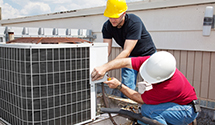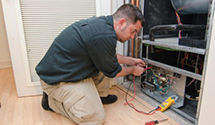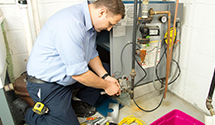24/7 Emergency HVAC Service in Orting, WA
Require emergency HVAC service in Orting, WA? Our specialist professionals are offered 24/7 to handle your heating and cooling emergency situations. Call us at 888-406-7517 for immediate assistance.
When faced with an unanticipated HVAC emergency, house owners require quick, trustworthy options that restore convenience and safety to their homes. Whether it’s a sweltering summertime day with a damaged air conditioning system or a freezing winter night without heat, these scenarios need instant attention from experts who understand the urgency and can act quickly. Our business focuses on supplying emergency HVAC services, making sure that your home remains comfy and safe no matter the time or season. Listed below, we’ll look into the common HVAC emergencies, preventive measures, and why choosing our service is the best decision for homeowners in need.
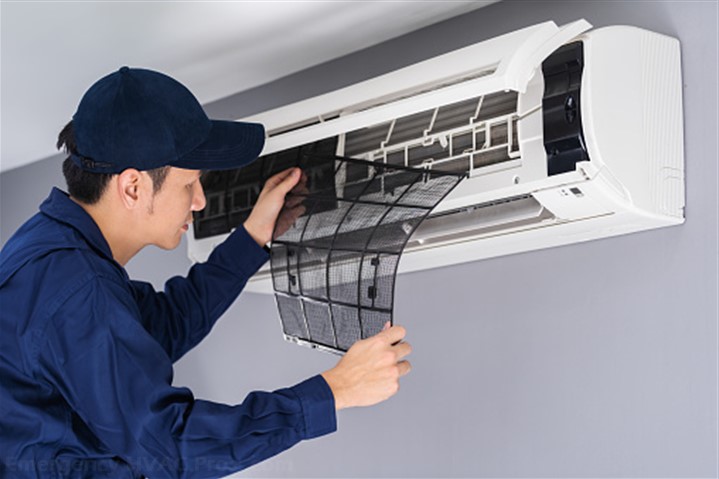
Comprehensive Emergency HVAC Services for Your Home in Orting
Our team of knowledgeable HVAC contractors is trained to handle a wide selection of emergency scenarios. With comprehensive knowledge in both domestic heating and cooling systems, we are geared up to diagnose and fix any concern that may occur. Here are some of the most common emergencies we respond to:
1. Furnace Failures
A heating system breakdown during the coldest months of the year is not only unpleasant but can likewise posture severe health dangers, especially for susceptible relative. Common heating system problems consist of:
- Ignition or Pilot Light Problems: Without a working ignition system or pilot light, your furnace can not produce heat. This concern often comes from a unclean or malfunctioning ignition component, which we can quickly repair or replace.
- Thermostat Malfunctions: If your heating system isn’t reacting to the thermostat settings, the problem could be with the thermostat itself. Our technicians can recalibrate, fix, or change malfunctioning thermostats to restore your heating.
- Blower Motor Failures: The blower motor is responsible for circulating warm air throughout your home. If it stops working, your furnace will not have the ability to disperse heat properly. We can identify and fix motor concerns to get your system back on track.
- Gas Line Issues: A problem with your heater‘s gas line is a severe safety issue. If you smell gas, it’s critical to evacuate your home and call emergency services right away. Our team can handle the essential repair work to guarantee your gas line is protected.
2. Air Conditioning Breakdowns
A operating air conditioner is crucial during the hot summertime. When your AC system fails, it can rapidly turn your home into an intolerable environment. Some of the most common a/c emergency situations include:
- Refrigerant Leaks: Refrigerant is vital for your AC to cool the air. A leak not only lowers your system’s performance but can likewise trigger the compressor to get too hot. We can locate and fix leakages, in addition to charge your system with the appropriate quantity of refrigerant.
- Compressor Failures: The compressor is the heart of your a/c system, and when it fails, the entire system can close down. Whether the concern is electrical or mechanical, our experts can identify and fix your compressor to bring back cooling.
- Frozen Coils: When air flow is limited or refrigerant levels are low, the evaporator coils can freeze, resulting in a system shutdown. We can thaw the coils and resolve the underlying cause to prevent future problems.
- Electrical Issues: a/c systems rely on various electrical components to operate properly. From blown fuses to malfunctioning circuitry, electrical problems can cause your system to fail. Our technicians are proficient in identifying and repairing these problems rapidly.
3. Heat Pump Issues
Heatpump are a versatile solution for both heating and cooling, making them an important part in numerous homes. However, they are not unsusceptible to issues. Typical heat pump issues consist of:
- Reversing Valve Malfunctions: The reversing valve allows the heatpump to switch in between heating and cooling modes. If this part stops working, your heat pump might be stuck in one mode. We can repair or replace the valve to bring back proper performance.
- Defrost Cycle Problems: In cold weather, heat pumps require to thaw periodically to prevent ice buildup. If the defrost cycle isn’t working correctly, ice can build up and decrease effectiveness. Our team can check and repair defrost cycle concerns to ensure your heatpump runs smoothly.
- Airflow Problems: Restricted air flow can trigger your heat pump to work harder than required, resulting in increased wear and tear. We can identify and remove blockages in your system to enhance airflow and performance.
4. Ductwork Problems
Your home’s ductwork is responsible for distributing conditioned air throughout your house. Issues with your ducts can compromise the performance of your HVAC system and cause unequal temperature levels or poor air quality. Typical ductwork emergencies include:
- Leaking Ducts: Over time, ducts can establish leaks that enable conditioned air to get away before it reaches its destination. This not just lowers effectiveness but can likewise increase energy bills. We can locate and seal duct leakages to improve your system’s efficiency.
- Blocked Ducts: Obstructions in your ductwork, such as debris or insect problems, can limit airflow and trigger your HVAC system to work harder. Our group can clear obstructions and guarantee your ducts are tidy and devoid of blockages.
- Poor Insulation: Inadequately insulated ducts can lose a significant amount of heating or cooling energy as air travels through them. We can examine your duct insulation and suggest enhancements to improve your system’s performance.
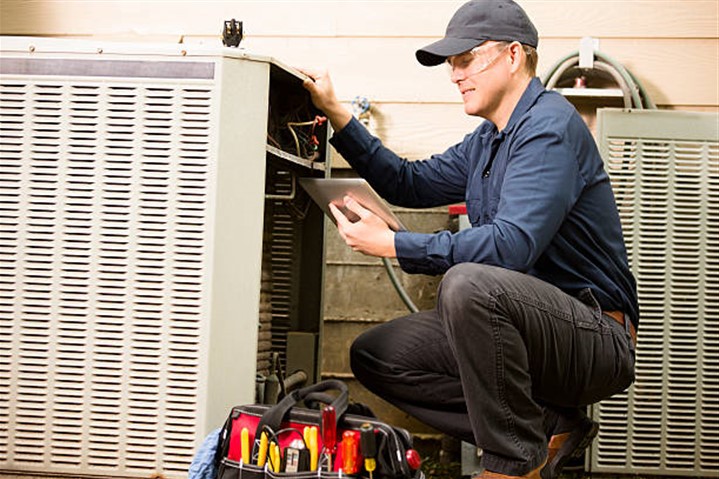
Proactive Steps to Prevent HVAC Emergencies in Pierce County
While it’s difficult to get rid of the threat of HVAC emergencies completely, there are proactive steps house owners can take to minimize the likelihood of a breakdown. Here are some essential pointers to keep your system running smoothly:
1. Set Up Regular Maintenance
Routine maintenance is the cornerstone of a trustworthy HVAC system. By scheduling routine inspections and tune-ups, you can catch possible problems before they end up being emergencies. During a upkeep go to, our service technicians will:
- Inspect and clean essential parts such as coils, burners, and blowers.
- Inspect refrigerant levels and top off if needed.
- Evaluate the thermostat and recalibrate it if needed.
- Lube moving parts to minimize wear and tear.
- Inspect electrical connections and tighten up any loose wires.
By staying on top of upkeep, you can extend the life-span of your HVAC system and decrease the probability of a unexpected breakdown.
2. Replace Air Filters Regularly
Among the most basic yet most efficient methods to keep your HVAC system running efficiently is by changing the air filters regularly. A dirty filter can block air flow, triggering your system to work more difficult and increasing the danger of a breakdown. Depending upon your system and home environment, it’s recommended to replace the filter every 1-3 months.
3. Display Your Energy Bills
A sudden spike in your energy costs can be a indication that your HVAC system is struggling. If you observe an unusual increase in your regular monthly utility costs, it’s worth having your system inspected by a professional. Early detection of issues can avoid more substantial issues down the line.
4. Keep the Area Around Your HVAC Units Clear
Guarantee that the locations around your indoor and outdoor HVAC systems are devoid of particles, vegetation, and other obstructions. This enables correct air flow and minimizes the risk of your system overheating. In addition, routinely cleaning the location around your units can avoid pests from nesting in your devices.
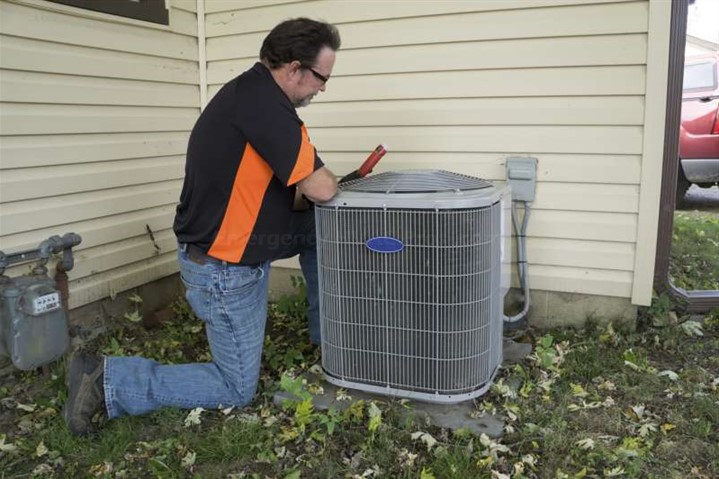
Why Choose Our Emergency HVAC Services?
When you’re handling an HVAC emergency, you require a team of HVAC Contractors in Washington that you can trust to supply prompt and dependable service. Here’s why homeowners choose us for their emergency HVAC requires:
1. 24/7 HVAC Contractor Availability
Heating and cooling emergency situations don’t adhere to a schedule, which is why our group is readily available 24/7 to react to your call. Whether it’s the middle of the night, a weekend, or a holiday, we’re prepared to help you whenever you require us.
2. Quick Response Times
In an emergency, every minute counts. Our service technicians are tactically situated to guarantee we can reach your home quickly and begin repair work as soon as possible. We understand the value of restoring your home’s convenience and work effectively to minimize downtime.
3. Experienced and Highly Trained Technicians
Our team consists of extremely trained HVAC specialists who have years of experience dealing with all types of emergency repairs. We stay current with the current industry requirements and best practices to offer you with the highest quality service.
4. Transparent Pricing
We believe in offering our customers with sincere, transparent rates. Before we start any work, we’ll offer you with a clear estimate of the costs included. There are no covert fees or surprise charges– just uncomplicated, dependable service you can rely on.
5. Top Quality Repairs and Parts
We use just the highest quality parts and equipment for our repairs, ensuring that your HVAC system is restored to peak performance. Our repairs are developed to last, providing you comfort that your system will continue to run efficiently long after we’ve completed the job.
When to Call for Emergency HVAC Service
It’s important to understand when an HVAC issue needs immediate attention. Here are some signs that it’s time to require emergency service:
- Total System Failure: If your heating or cooling system quits working entirely, it’s time to call a professional. A total system failure is a clear sign that something is seriously incorrect and requires immediate attention.
- Unusual Noises: Loud, uncommon sounds such as banging, clanking, or shrieking can suggest a major problem with your HVAC system. These noises often signal a mechanical problem that needs to be addressed before it leads to a complete breakdown.
- Burning Smell: A burning smell coming from your HVAC system is a cause for issue. It could suggest an electrical problem, such as overheating wires or components, which postures a fire risk. Switch off your system right away and call for emergency service.
- Sudden Temperature Fluctuations: If your home’s temperature level is fluctuating hugely or your system is struggling to keep a constant temperature, it’s a sign that your HVAC system is not operating properly. An emergency evaluation can recognize the problem and prevent further damage.
- Water Leaks: Water pooling around your HVAC system could suggest a refrigerant leak or a problem with the condensate drain. These concerns can trigger substantial damage to your system and your home if not dealt with promptly.
Contact Us for Reliable Emergency HVAC Service
Heating and cooling emergency situations need prompt action from knowledgeable specialists. Our team is here to supply you with fast, trustworthy service whenever you require it. Don’t let a heating or cooling emergency interrupt your life– reach out to us for immediate support. We’re available 24/7 to react to your call and bring back comfort to your home.
Contact us now at 888-406-7517 for quick, reliable emergency HVAC service. We’re here to help you get your system back up and running as quickly as possible, so you can return to delighting in a comfy, safe home.
We can provide 24/7 Emergency HVAC Service for all areas in Orting, WA including: Pierce County, , Crocker, Electron, Ohop, in Zip Codes 98360 and in Area Codes 360
We can provide HVAC Contractors for all areas in Pierce County including:



